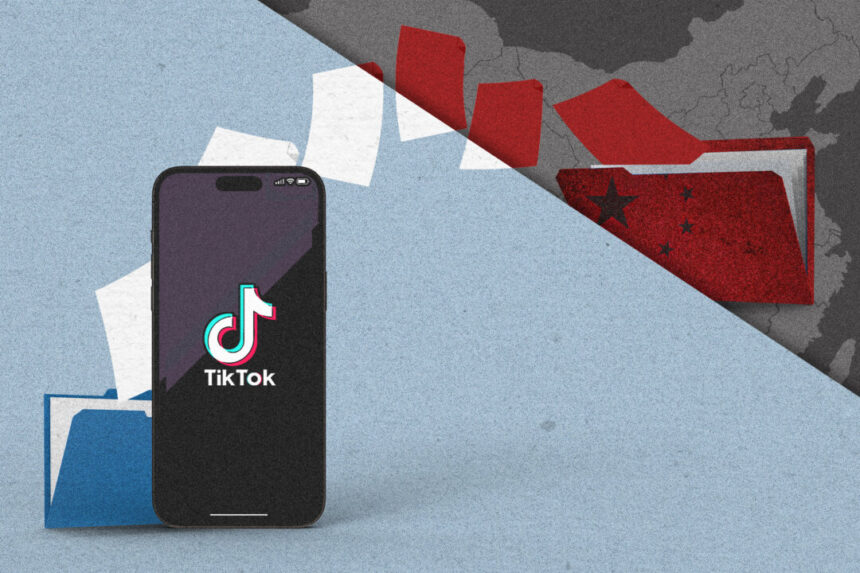News Analysis
Critics of the law that gives TikTok a divest-or-leave ultimatum call it a “ban.” TikTok itself argues the U.S. government has not provided proof it is a national security risk warranting such heavy-handed measures. Lawmakers and the U.S. intelligence community, meanwhile, argue the app poses a grave threat to national security, if it remains in the hands of the Chinese communist regime.
On April 24, President Joe Biden signed into law the Protecting Americans from Foreign Adversary Controlled Applications Act (PAFACA), a law that requires apps controlled by foreign adversaries to sever that connection to operate in the United States. This created a countdown for China-based parent company ByteDance to sell off TikTok by Jan. 19, 2025. ByteDance and TikTok sued, arguing the law is unconstitutional on a First Amendment basis.
Congress introduced that bill in March and passed it with broad bipartisan support the same month. While onlookers noted the swiftness with which the bill became law, the United States had negotiated with TikTok for years before matters came to this point.
TikTok Goes to Washington
TikTok entered the U.S. and global markets in September 2017, and two months later, ByteDance acquired Musical.ly with its 200 million users and folded it into TikTok.
In 2019, the U.S. government contacted ByteDance by way of the Committee on Foreign Investment in the United States (CFIUS) and flagged national security concerns.
The committee has very specific authority—to review transactions with foreign investment on the basis of national security—and it was challenged as to whether it had authority to review the purchase of Musical.ly when it had occurred two years prior.
By July 30, 2020, CFIUS had completed a formal review and announced an investigation into ByteDance’s purchase of Musical.ly.
Two weeks later, President Donald Trump issued an executive order requiring ByteDance to divest from its American apps, namely TikTok. ByteDance sued, and the government lost on procedural grounds. The court questioned why an executive order was needed when CFIUS had yet to complete its investigation. The order was stayed, and the lawsuit was frozen.
From November 2020 on, the executive branch held ongoing meetings with ByteDance and TikTok, reviewing dozens of proposals and having in-depth technical discussions to find a resolution short of divestment.
David Newman, currently the second highest-ranking official in the Justice Department’s (DOJ) National Security Division, was involved in these talks and stated in a sworn affidavit filed in court in July this year that ByteDance’s incremental concessions led the government to believe they could reach a solution.
But after years of discussion, ByteDance was unwilling to agree to terms that would mitigate risks posed by the Chinese Communist Party’s (CCP) access to user data and its ability to influence the app, he said.
On Aug. 23, 2022, ByteDance submitted its final proposal and has publicly touted the nearly $2 billion it invested in “Project Texas,” meant to house data on U.S. soil. However, extensive review from the government and experts found this proposal was “insufficient” to address core national security concerns.
Clash of the National Security Laws
As TikTok CEO Shou Zi Chew pointed out in congressional hearings, ByteDance is a privately owned company in the Cayman Islands. However, its headquarters is in China and companies do not need to be Chinese to be subject to Chinese laws.
The CCP has passed several laws that require all individuals and organizations operating in China to aid the CCP’s digital authoritarianism, claiming “digital sovereignty” gives it the authority to enforce these laws even overseas, and even if they conflict with foreign laws.
The CCP’s 2015 National Security Law defines security as a state where the country and CCP’s interests are “relatively free from danger and internal and external threats.” It requires people and organizations in China to report any evidence that would endanger this state and assist authorities in national security efforts.
A 2015 Anti-Terrorism Law defines terrorism broadly as “propositions and actions that … coerce state organs or international organizations to achieve their political, ideological, or other objectives” and authorizes state surveillance while requiring all people and organizations in China to assist the CCP in this work.
The 2016 Cybersecurity Law requires companies operating in China to store data in China and allow full access to such data to CCP authorities, requiring networks to “accept supervision from the government.”
The 2017 National Intelligence Law gives the CCP the authority to conduct intelligence work through any “necessary methods, means, and channels ” and requires all individuals and organizations in China to cooperate with these operations.
These laws also contain provisions prohibiting these individuals or organizations from disclosing whether they were required to comply with CCP operations.
Put together, the laws create conditions for ByteDance to be called to secretly share with the CCP data pulled from TikTok while publicly denying this, or even without TikTok’s knowledge.
TikTok did not respond to an inquiry from The Epoch Times.
“Because Chinese laws enable the PRC [People’s Republic of China] to exert control over Chinese companies’ U.S. subsidiaries … the PRC has and can benefit from those companies’ commercial successes as the Chinese government can leverage its legal regime and other tools to co-opt those companies for geopolitical gain,” stated FBI counterintelligence assistant director Kevin Vomdran in a court filing.
The law TikTok is now challenging in federal appeals court is a U.S.
Revise national security legislation. “It’s likely not a positive situation.” In my personal experience, I have observed that ByteDance views employees who criticize the company’s practices as ‘traitors’ who must be eliminated at all costs. TikTok and its supporters argue that the U.S. government has not presented any concrete evidence to justify a divestiture law, but lawmakers believe this overlooks the role of policymaking. Rep. John Moolenaar (R-Mich.), chair of the House Select Committee on the CCP, emphasized the importance of identifying ‘loaded guns’ like companies that are subject to the CCP’s national security laws, rather than waiting for a ‘smoking gun’ to take action. Following the enactment of PAFACA, Congress introduced a series of bills aimed at addressing CCP threats, focusing on preventing future behavior such as CCP investments in American institutions. Additionally, the Biden administration has proposed regulations to safeguard American supply chains from reliance on the CCP, including increased tariffs and a potential ban on Chinese software and firmware in American vehicles. Please rewrite this sentence. Please rewrite the following sentence:
Original: The cat ran quickly across the yard.
Rewritten: The feline swiftly dashed through the yard.
Source link





